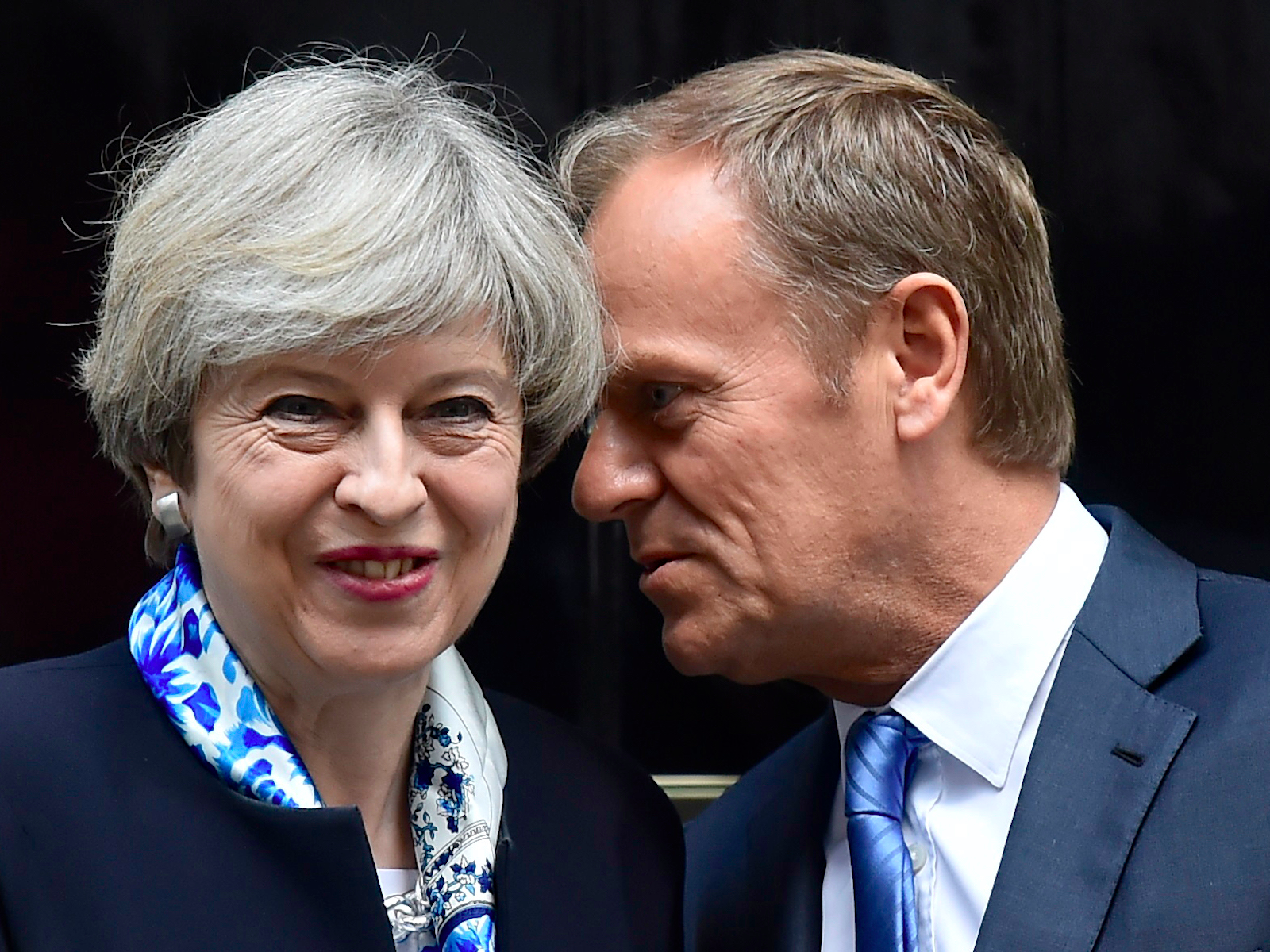Member countries of the European Union are about to sign European Council president Donald Tusk’s strict set of guidelines that detail how the bloc will approach negotiations with Britain over its withdrawal from the EU.
The core points in Tusk’s guidelines as are that “Britain will have to accept the EU’s laws, court and budget fees if it seeks a gradual transition from the single market.“
In other words, the UK will have to accept big fees and abide by EU laws and processes if it wants to be granted a transition deal – a leeway period or phased process of implementation of Brexit agreements for Britain. The EU is making this a “red line” in negotiations.
According to a number of diplomats cited by The Financial Times, there have been no objections from EU members regarding the details or wording of the tough set of guidelines set out by Tusk and it is unlikely that any amendments will be sought, thereby leading to a unanimous signing of the document.
- The FT cited “one high-level figure who is closely involved in Brexit preparations” said: “I have not heard any rumbles of any bit of the guidelines being out of kilter with the general view.” Another said: “The general mood is that in fact the guidelines are in a good place. They’re very well cast, thorough, well structured. There’s a view that the thing is actually well done and there’s going to be no need for much tinkering.” A third said: “I don’t detect any great desire to unravel it. Our sense is that the Germans are quite happy with the text generally.”
Britain is heading for a “hard Brexit” – the UK leaving the Single Market in lieu of total control over immigration. However, economists, lobby groups, and businesses have pushed the government for a transition deal that will allow Britain to have more time to adjust to the big change.
At the beginning of April, major finance lobby group AFME said Britain's banks and other professional services institutions are going to struggle to fully prepare themselves for Brexit within the two-year deadline.
In a lengthy report, titled "Implementing Brexit: practical challenges for wholesale banking in adapting to the new environment," AFME said that there was already a "substantial amount of evidence" that banks and clients will find it incredibly difficult to construct and implement new processes and structures in time for the new regulatory landscape that will occur once Britain leaves the EU.
Having a transition deal is probably one of the most vital things that can happen for many businesses, as it prolongs the period companies and other institutions have to get ready for the dramatic changes in how they operate.
The EU guidelines that relate to the transition deal include:
- Any transitional deal must not last longer than three years. Any transitional deal will be enforced and overseen by the EU's Court of Justice (ECJ). UK citizens in the EU and EU citizens in Britain should be guaranteed reciprocal treatment. No final deal can include a trade-off between trade and security cooperation. The UK must adhere to EU environment and anti-tax evasion rules in order to achieve close trade ties after Brexit. The UK should pay to the EU costs that "arise directly from its withdrawal." The European Banking Authority and European Medicines Agency should be relocated away from London.

